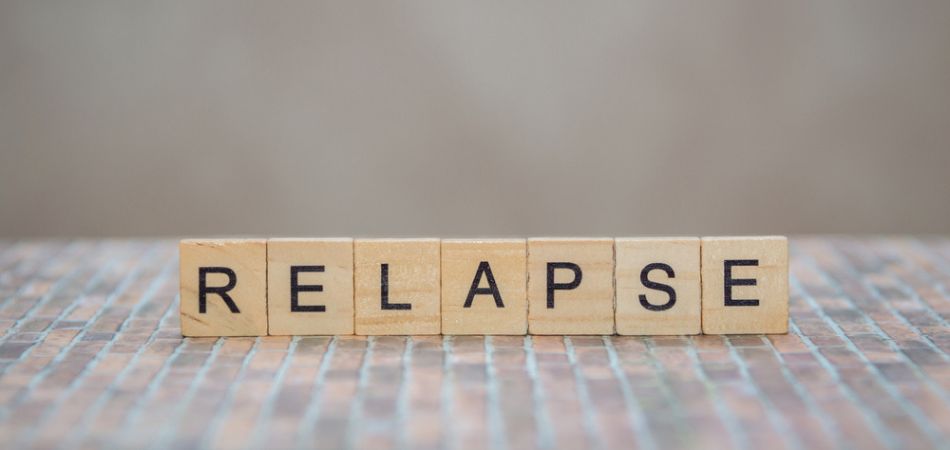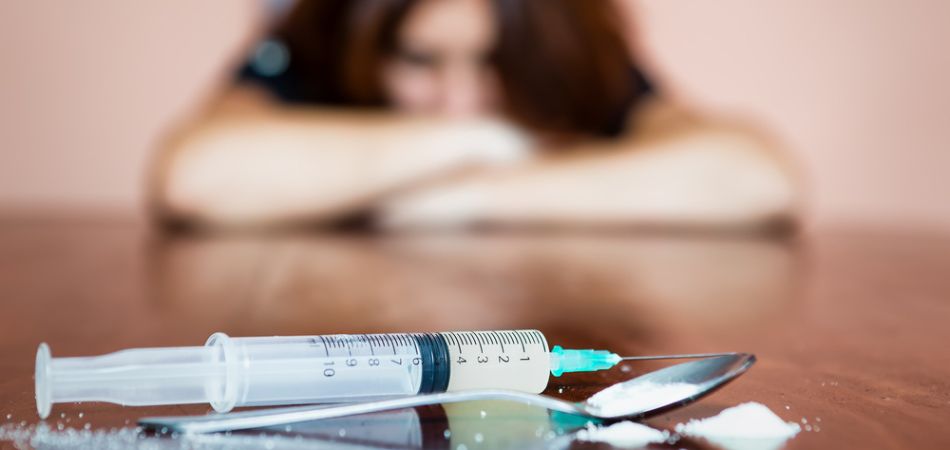Last Updated:
August 29th, 2025
After days, weeks, or even months of progress in sobriety, the pressures of relapse can make you feel like your burden is too heavy to carry. But the truth is, relapse does not mean you have failed.
It means that something inside is crying out to be understood.

What exactly is a relapse?
The word relapse is Latin in origin, stemming from the verb relabi, meaning “to slide back” or “slip back.” It was historically used in medical settings to describe a dangerous health condition that shows signs of improvement, before slipping back to a worsening state. Even now, it’s still used by hospital workers to describe cancer patients who start to get better before sadly sliding back into a deteriorating state.
In terms of addiction, relapse happens when a person returns to drinking or drug use after a considerable period of abstinence. You may have heard people express relapse more colloquially as backsliding or falling off the wagon when someone returns to substance use.
Witnessing a person relapse can be an utterly heartbreaking process. Yet it is critical to remember at our darkest and saddest moments that a temporary relapse does not equate to failure. We need to remain strong enough to see relapse as what it is: one single moment in time, which we can, in fact, learn from to figure out what is and isn’t working.
If we respond with care instead of condemnation, relapse may have the capacity to strengthen long-term recovery and bring a struggling person to a brighter, sober tomorrow.
Why is relapse so often seen as failure?
The word relapse undoubtedly carries a severe tone when it lands on our ears. Many people, both those in recovery and those on the outside, automatically equate it as a step backwards or a sign of weakness. Yet this perception may be rooted more in stigma than anything else.
Addiction is increasingly understood as a chronic, relapsing condition, rather than a series of bad choices. In the same vein as other chronic illnesses, like diabetes or hypertension, it needs adjustments that come over time. A relapse is a sign that something needs refining, and is not a sign of moral failing.
The belief that relapse erases all progress can be utterly devastating to a recovering person. A brash, dismissive approach can often act as the tinderblock that starts a fire of hopelessness. We should remember that recovery, like any other form of progress, is not a straight line. It is unrealistic to think that nobody has a setback on their way to achieving goals.
Suppose we reframe relapse as part of the learning process. In that case, we increase the likelihood that a person will seek help again, rather than internalising their pain and heading into devastating self-isolation.
What does relapse actually tell us?
Each person’s relapse drivers may be different, but some of the ways your body, mind and spirit may be communicating with you through relapse include:
Your personal triggers
Each and every person has unique triggers, or drivers of cravings and urges to return to substance use. If we are sensitive enough, we can see the ways relapse points to the precise drivers of these urges. Many people discover stress at work, loneliness, or specific social settings as stimuli for returning to a substance. Discerning these drivers patiently can allow us to work on mitigating or removing the triggers of relapse.
Your unmet emotional needs
Sometimes relapse reveals non-physical struggles that a deeply set in a person’s emotions. There may be a need for connection or stability that simply isn’t being met. A person may be carrying unspoken traumas that continue to hold them back from the inner peace they need. At times like these, many people return to substances as a way to meet the feelings they’re longing for, though it is only an illusory satisfaction.
A call to revisit and strengthen your support
One of the most common reasons a person relapses is because they choose to isolate, and the weight simply becomes too heavy to carry. It may not solely be that person’s fault, too, as their support system may have weakened as friends and loved ones stop showing up for them. Relapse may be giving you feedback to ask you to reconnect with loved ones and fortify your relationships.
How to prevent relapse moving forward
If you’ve struggled in the past with relapse or are going through one right now, please understand that it’s not the end of your recovery; it is just an unfortunate detour.
Try taking these active measures to strengthen your navigation skills when the road starts winding into dark places:
Build a flexible relapse prevention plan
In a relapse prevention plan, you should be able to identify your personal goals, triggers, routines and coping strategies. Your relapse prevention plan should be honest and reflective, so that it becomes a wellspring of confidence and determination when you’re struggling. It will also let you know what to do after a relapse, to get back into your healthier routines.
Try writing down:
- Your personal goals: X amount of days sober, rebuilding relationships, seeking better employment.
- Addiction triggers: Recurring stimuli that cause you problems in maintaining sobriety, “people, places, and things” that form urges, and honest reflection on your home environment.
- Daily routines: Be kind, but set small targets to aim for, like exercising three times a week, eating healthier and more balanced meals and sleeping at a predictable time.
Make your long-term support group part of your routine
Take substantial measures to ensure your long-term support group is close to you and is there for the long run. One of the best protections against relapse is having people around you who want you to stay sober. 12-step meetings and peer recovery groups can work as well as trusted friends and family. Make sure you’re checking in with them when you need to, as long-term support groups can often be your bedrock for remaining sober.
Use feedback loops to spot the warning signs earlier
It is not right to say that relapses strike completely out of the blue. There will always be subtle shifts and cues that let you know one is coming. There may be days when you’re emotionally overwhelmed, and you didn’t reach out to the right person at the right time. Journaling and checking in on yourself in writing may let you reflect on recent signals of feedback. Try your best not to ignore or minimise these cues, as they should be invitations to pause and intervene before a full relapse raises its head.
Where can I get support for my addiction?
If you’re struggling with addiction or feeling the heavy weight of relapse, please know that you are not alone. At UKAT, we understand that recovery is so rarely a straight line, so we’re here to support you through every step of the journey.
Our treatment programmes are tailored with your unique needs in mind. Our medical detox services are delivered by expert-trained staff, helping you manage any uncomfortable withdrawal symptoms. Therapy for relapse prevention plays a central role in our evidence-based therapy approach. Then, our UKAT aftercare and alumni community keeps you on solid foundations for supported, lifelong sobriety.
Respect and non-judgemental care are at the heart of everything we do. Reaching out is a sign of strength and not a failure. Contact us today to begin your next chapter. We’ll walk it with you.




